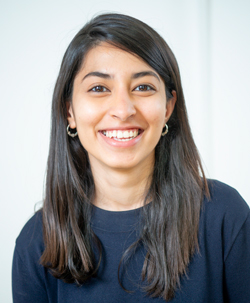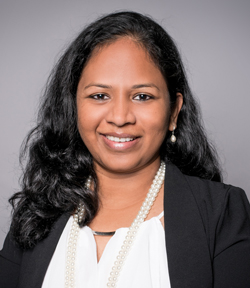Walking the talk of sustainable creativity

Insiya Jafferjee
Insiya Jafferjee is CEO and co-founder of the London-based Shellworks which specialises in creating sustainable packaging solutions. Using seafood waste at the onset of its operations, primarily discarded lobster shells, designers at Shellworks were able to engineer a series of machines which convert this waste into a bioplastic, a sustainable alternative material to single use plastics.
Insiyah was thus an obvious choice as one of the key speakers when Good Life X in partnership with the British Council kicked off its ‘Regenerating a Creative Future’ programme in late February. In the five-part conversation series speakers discuss the impact of the creative and innovative sector and how its contributions can become more sustainable or ‘more circular’ in furtherance of a regenerative economy.
Along with Insiya at the first session was Dr. Randika Jayasinghe who looked at the role of technology in creating new opportunities in emerging economies with a focus on the circular economy.
Insiya who studied at the Asian International School in Colombo, graduated from Stanford University with a BSc. Engineering in Product Design and a MA/MSc. Double Masters in Innovation Design Engineering from the Royal College of Art & Imperial College of London. Dr. Randika Jayasinghe, an expert in Waste Management with a PhD in Environmental Engineering Technology from the University of Western Australia is currently a Senior Lecturer in the Faculty of Technology in the University of Sri Jayawardenepura.

Dr. Randika Jayasinghe
The first barrier in implementing a circular economy in the country is getting people to understand the concept, says Randika, underscoring that it is ‘more than just recycling’. Resolving the wasteful cycle created by the linear economy requires a more holistic approach by exploring ways in which to avoid generating unnecessary waste in the first place. Following this, the next step is seeking ways to circulate common waste materials such as plastic, paper and organic materials in a way where they are returned back into the system in order to regenerate it.
For smaller businesses however, the challenge posed by cost is often insurmountable. Randika says that even acquiring raw materials can prove to be a considerable expense. Speaking of upcycling businesses in particular, she says that while waste is a major and widely available raw material which can be used to create new products, she clarifies that it is uncontaminated waste which must be sought and not waste sourced from dump sites.
Part of the ‘Regenerating a Creative Future Programme’ is to address this gap by connecting smaller organisations with larger ones who can supply them with this kind of ‘clean’ waste. The textile industry alone is responsible for supplying upcyclers with the waste materials needed to create products like rugs and soft toys which are produced through community-based initiatives.
Plastic waste on the other hand is a more complex issue to resolve. Insiya opines that it’s a concern which needs to be tackled from multiple angles. “Decoupling from the petroleum industry is really hard and there are many different ways you can try to do that and I think we’re under the understanding that it’s a rising tide that’s going to lift all boats.” One way Shellworks has been able to do this is by creating materials that don’t cause the kinds of problems plastic does. This is how bio-based and compostable materials have a role to play. Through their efforts they have been able to produce a range of environmentally friendly products including food safe carrier bags, self-fertilising plant pots, containers, cups and more.

Notebook covers made out of toffee wrappers, medicine cards, tetra paks and plastic packaging materials by Katana Upcycle
Shellworks is currently leveraging bacteria to grow materials through fermentation processes which can then be used to create new products. The material they have created is called Vivomer, an entirely vegan and compostable material. As these products are designed to degrade, Vivomer products don’t leave behind any microplastics and instead, once it is discarded, microbes found in soil and marine environments view it as a source of food and consume the material.
Despite the growing availability of sustainable alternatives, another significant barrier is encouraging consumer engagement. Randika shared an account of a project she was a part of which was initiated by the organisation, Waste for Life. They developed a model for the dual purposes of waste management and poverty reduction by setting up facilities at local universities where they used thermoplastic materials and natural fibre materials to create composite materials. The experimenting part was easy, she says, as they shared this knowledge with marginalised communities who work with waste and trained them to make products using these materials to help generate a steady source of income.
The challenge was in finding a market.
One of the products made was a notebook created out of plastic waste and banana fibre. Despite the ingenuity that went into creating this product she explains that due to the availability of more affordable and mass produced notebooks, upcycled products receive little demand. One of the strategies used by the groups Randika works with is to enhance awareness by telling the story of the product. Printed inside are details pertaining to the making of the products, relaying to customers that it is a handmade creation born out of many hours of work by members of communities based in areas such as Jaffna.
Price sensitivity has long been a cause for slow growth when it comes to sustainability says Randika, and with living costs on the rise the issue is sure to worsen. “I think this is going to be a very challenging period for social enterprises who are trying to promote their eco-friendly products – let’s be hopeful that we can turn the tide back towards the positive side and change the consumers mindset to become more socially conscious.”
The final session of the Regenerating a Creative Future programme will be held on March 24 via Zoom.
Visit the Good Life X or the British Council website for more information.
Searching for an ideal partner? Find your soul mate on Hitad.lk, Sri Lanka's favourite marriage proposals page. With Hitad.lk matrimonial advertisements you have access to thousands of ads from potential suitors who are looking for someone just like you.


